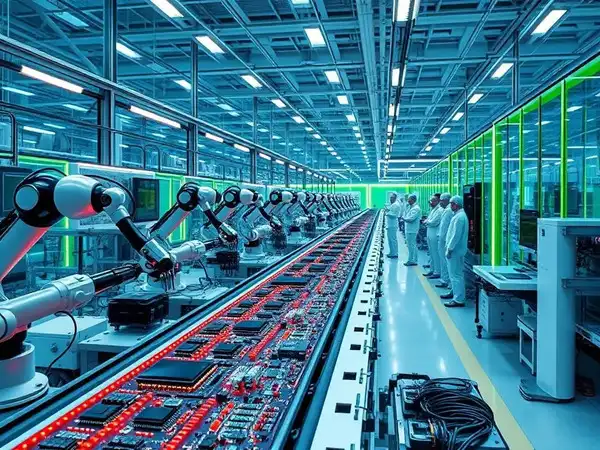Now Reading: China’s Rare Earth Export Curbs May Hit Global Electronics Supply Chain, India’s Manufacturing Jobs at Risk
-
01
China’s Rare Earth Export Curbs May Hit Global Electronics Supply Chain, India’s Manufacturing Jobs at Risk
China’s Rare Earth Export Curbs May Hit Global Electronics Supply Chain, India’s Manufacturing Jobs at Risk

China’s decision to tighten control over rare earth exports is raising global concerns, especially for the electronics industry. Smartphones, TVs, and audio devices — which rely heavily on these critical minerals — may soon face production delays or cost hikes. For India, particularly in growing Tier 2 manufacturing hubs, this move threatens job security and highlights the urgent need to reduce import dependence in core tech components.
What Are Rare Earths and Why Do They Matter?
Rare earth elements are a group of 17 minerals essential in making chips, batteries, speakers, magnets, and other electronics components. Despite the name, these minerals are relatively abundant — but processing them is complex and environmentally challenging.
China currently dominates global rare earth production and refining, making up over 80% of the world’s supply. Any disruption from its side creates ripple effects across industries, from mobile phones to electric vehicles.
Impact on Global Electronics Industry
With stricter export rules now in place, companies that manufacture smartphones, televisions, and audio systems are bracing for delays, rising material costs, and potential supply shortages. The move could particularly affect companies in Japan, South Korea, and Southeast Asia, which depend heavily on China for steady inputs.
As raw material costs rise, the prices of end products could also go up — directly affecting consumers, especially in price-sensitive markets like India.
India’s Manufacturing Push Faces a Challenge
India has been working to boost domestic electronics manufacturing under the “Make in India” and “PLI (Production Linked Incentive)” schemes. Tier 2 cities like Noida, Coimbatore, Aurangabad, and Vadodara have become rising hubs for mobile phone and consumer electronics assembly.
But with limited access to critical raw materials like rare earths, India’s dependence on Chinese imports remains a weak link. If supplies slow or become more expensive, many small and mid-sized units — especially those in Tier 2 industrial clusters — could face disruptions, layoffs, or even closures.
Jobs and Economic Impact
Thousands of workers are employed in electronics assembly, packaging, and quality control in India’s smaller cities. A break in the global supply chain could threaten these jobs, slow down local economic activity, and delay the country’s ambition of becoming a global electronics export hub.
This comes at a time when India is also trying to attract companies looking to diversify away from China — but without rare earth independence, it remains a vulnerable alternative.
Calls for Diversification and Mining at Home
Experts are now urging India to invest more aggressively in exploring and refining its own rare earth reserves, found in states like Andhra Pradesh, Tamil Nadu, and Jharkhand. At the same time, diversifying trade relationships with countries like Australia and the US, which also mine rare earths, could offer more stable alternatives.
Without long-term planning, India risks being caught in the crossfire of global trade decisions it cannot control.
Conclusion
China’s rare earth export restrictions may seem like a distant geopolitical issue, but their consequences could be felt right down to India’s small-town factories and urban electronics stores. For Tier 2 cities playing a key role in India’s digital and manufacturing future, the message is clear — self-reliance in core supply chains is no longer optional, it’s a strategic necessity.

























